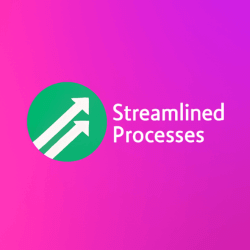For Saas Marketing Analytics Tools, see our main page here.
Understanding the Role of Saas Marketing Analytics Tools in Growth
SaaS companies thrive on data. Without it, decisions about customer acquisition, retention, and product performance become guesswork. Saas Marketing Analytics Tools help decode user journeys, identify patterns, and uncover growth opportunities.
These tools are designed to simplify the complex data that comes from multiple sources—ads, social media, newsletters, in-app behavior, and more. As a result, businesses can optimize marketing spend, improve conversion rates, and increase customer lifetime value.
How Saas Marketing Analytics Tools Power Smarter Strategies
The real power of analytics lies in turning insights into action. With Saas Marketing Analytics Tools, marketing teams get real-time dashboards that show campaign performance and ROI. For example, if you’re investing in a content strategy, you can see exactly which blog posts bring the most trial users.
In addition, many tools offer predictive modeling. This allows marketers to forecast customer trends based on historical data. Consequently, teams can allocate budgets more effectively and create tailored campaigns for specific segments.
Popular Features You Should Look For
Not all analytics platforms are created equal. While basic tools only offer vanity metrics, top-tier SaaS platforms focus on actionable intelligence.
- Multi-touch attribution: Understand how each touchpoint contributes to a conversion.
- Cohort analysis: Track user behavior by signup time, location, or campaign source.
- Funnel visualization: See where prospects drop off in your sales process.
- Automated reports: Get PDFs or interactive dashboards sent to stakeholders regularly.
- Custom KPIs: Set metrics unique to your product, like feature engagement or subscription upgrades.
Top Saas Marketing Analytics Tools in 2024
Many tools compete in this space, but some stand out for their adaptability and depth. We’ve tested several to highlight a few favorites:
- Mixpanel: Focuses on user interaction and behavior insights. Strong in product-led growth tracking.
- Segment: Specializes in customer data routing. It’s perfect for connecting all tools in one ecosystem.
- Amplitude: Offers granular behavioral analytics and engagement metrics. Ideal for retention-focused teams.
- Google Analytics 4 (GA4): A free tool with advanced features, although it takes time to master.
- Heap: Automatically collects all user interactions without tagging, making setup simple.
Each of these caters to different business sizes and maturity levels, so the best pick depends on your goals and tech stack.
Case Study: Scaling With Amplitude
A mid-sized B2B SaaS startup, known for its user onboarding platform, implemented Amplitude in 2022. Prior to this, their marketing team depended on Google Analytics and spreadsheets. This limited their ability to pinpoint drop-off points in their signup process.
After integrating Amplitude, the team could see how trial users engaged with specific features. Most importantly, cohort data revealed that new users interacting with video tutorials had a 35% higher activation rate. As a result, the company redesigned its onboarding experience and increased conversions by 22% in six months.
Common Pitfalls When Using Saas Marketing Analytics Tools
Despite the powerful benefits, some teams stumble when implementing these tools. The most common mistakes include:
- Tracking everything without a plan: Collecting too much data without a clear goal creates noise, not insights.
- Ignoring segmentation: Viewing all users as equal misses critical patterns within user groups.
- Focusing only on vanity metrics: Metrics like page views and likes look good but may not impact revenue.
- Not training your team: Even the best tool is useless if the team doesn’t know how to interpret the data.
To clarify, investing in onboarding and continuous training can help avoid these issues and maximize value.
Integrating AI in Analytics Tools
Today, AI is transforming how Saas Marketing Analytics Tools deliver value. Tools are moving from passive reporting to proactive recommendations. For example, AI-powered insights can detect anomalies in conversion funnels or suggest new segments to target.
In the same vein, AI can automatically score leads based on behavior, predict churn, and personalize outreach. This is particularly valuable for growing SaaS teams with limited resources.
This article was created with the assistance of AI tools and reviewed by our team at Streamlined Processes LLC to ensure accuracy and relevance.
Choosing the Right Tool for Your Business
Before you commit to a platform, assess your team’s technical skills and business goals. A solo founder may prefer simple tools like GA4 or Heap. Conversely, a growing team might benefit from deeper platforms like Mixpanel or Amplitude.
Also, consider integration. Does the tool play well with your CRM, helpdesk, email platform, or data warehouse? Moreover, is support available when your team hits a snag?
Finally, test tools with real data. Most premium platforms offer trials or freemium models. So, run your actual campaigns and see which platform brings clarity rather than confusion.
FAQ About Saas Marketing Analytics Tools
- What’s the difference between product analytics and marketing analytics?
Product analytics focuses on how users interact within the app, while marketing analytics tracks external activities like ad clicks, email opens, and website visits. However, the two overlap in growth strategies. - Can small SaaS startups benefit from analytics tools?
Certainly. Even early-stage teams can gain insights from free or low-cost platforms, helping them avoid costly mistakes. - How long does it take to see results?
Most users see actionable insights within 2–4 weeks if the tool is configured properly. However, continuous iteration brings better long-term results. - Do I need to hire a data analyst?
Not always. Many modern platforms include visualization and AI-based suggestions. But for more complex needs, having data expertise on hand helps.
In Conclusion: Build Smarter, Not Just Bigger
In short, Saas Marketing Analytics Tools can be the difference between scaling efficiently or pouring money into guesswork. They empower teams to make smarter choices with less risk. As SaaS competition heats up, data-driven clarity is no longer optional—it’s your edge.
Follow us on Facebook here.

